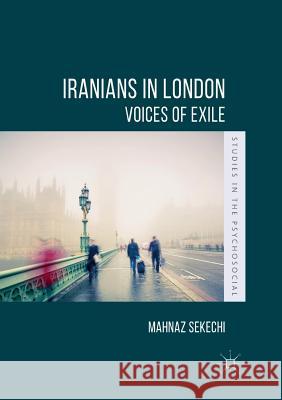Iranians in London: Voices of Exile » książka
topmenu
Iranians in London: Voices of Exile
ISBN-13: 9783030077075 / Angielski / Miękka / 2018 / 283 str.
Iranians in London: Voices of Exile
ISBN-13: 9783030077075 / Angielski / Miękka / 2018 / 283 str.
cena 272,35 zł
(netto: 259,38 VAT: 5%)
Najniższa cena z 30 dni: 269,85 zł
(netto: 259,38 VAT: 5%)
Najniższa cena z 30 dni: 269,85 zł
Termin realizacji zamówienia:
ok. 20 dni roboczych.
ok. 20 dni roboczych.
Darmowa dostawa!
Kategorie:
Kategorie BISAC:
Wydawca:
Palgrave MacMillan
Seria wydawnicza:
Język:
Angielski
ISBN-13:
9783030077075
Rok wydania:
2018
Wydanie:
Softcover Repri
Numer serii:
000456385
Ilość stron:
283
Waga:
0.35 kg
Wymiary:
21.01 x 14.81 x 1.57
Oprawa:
Miękka
Wolumenów:
01
Dodatkowe informacje:
Wydanie ilustrowane











